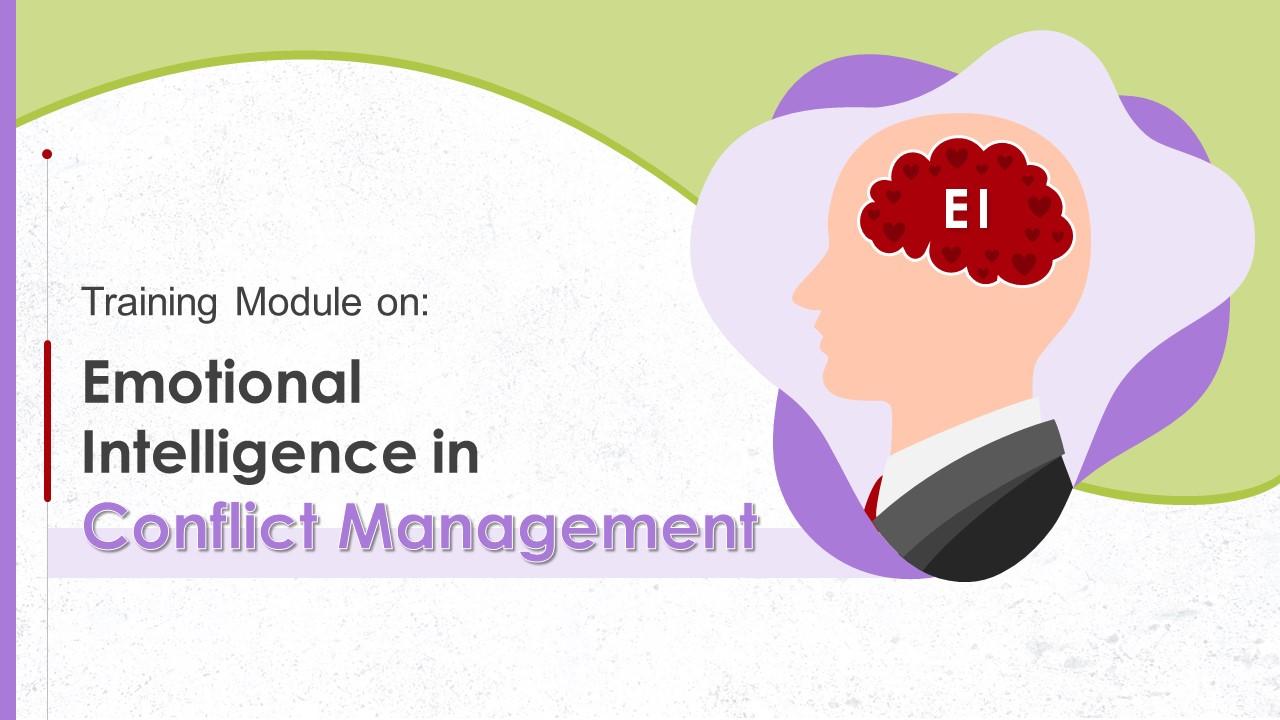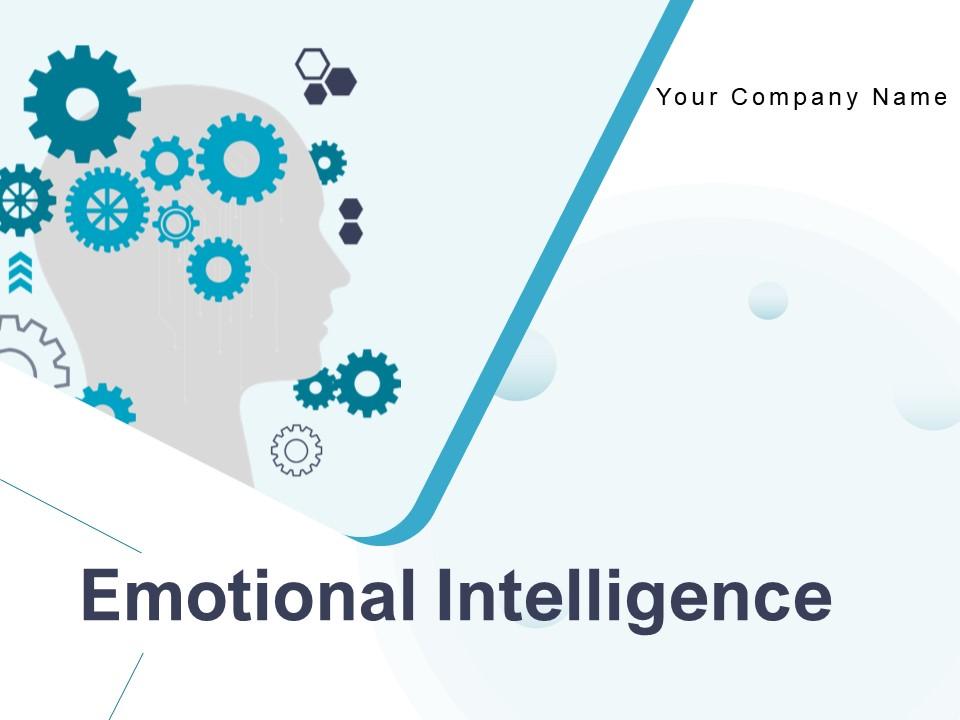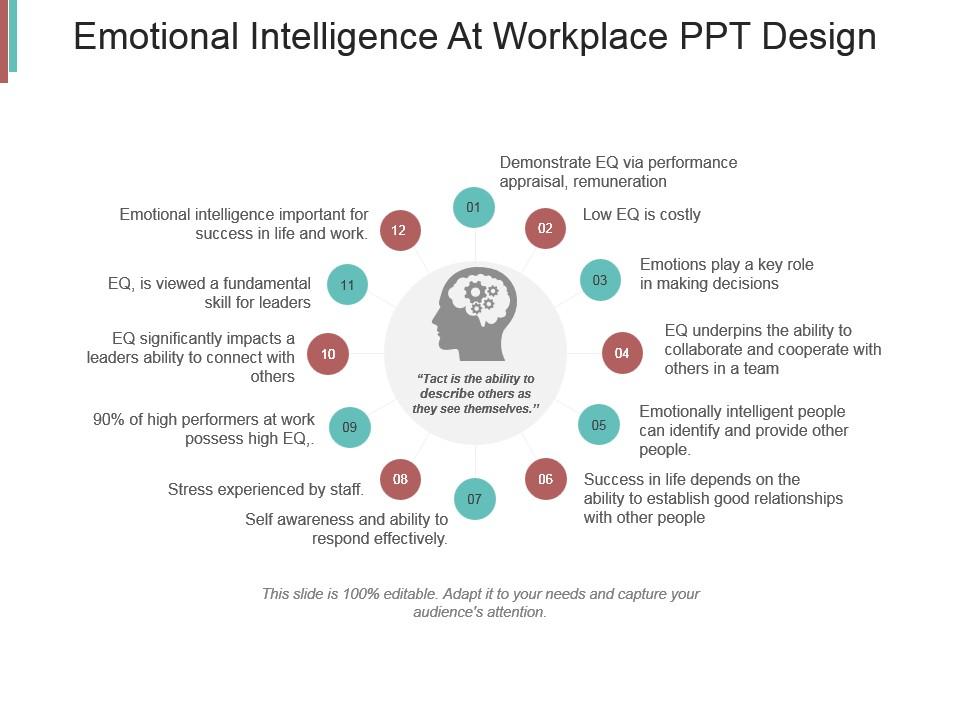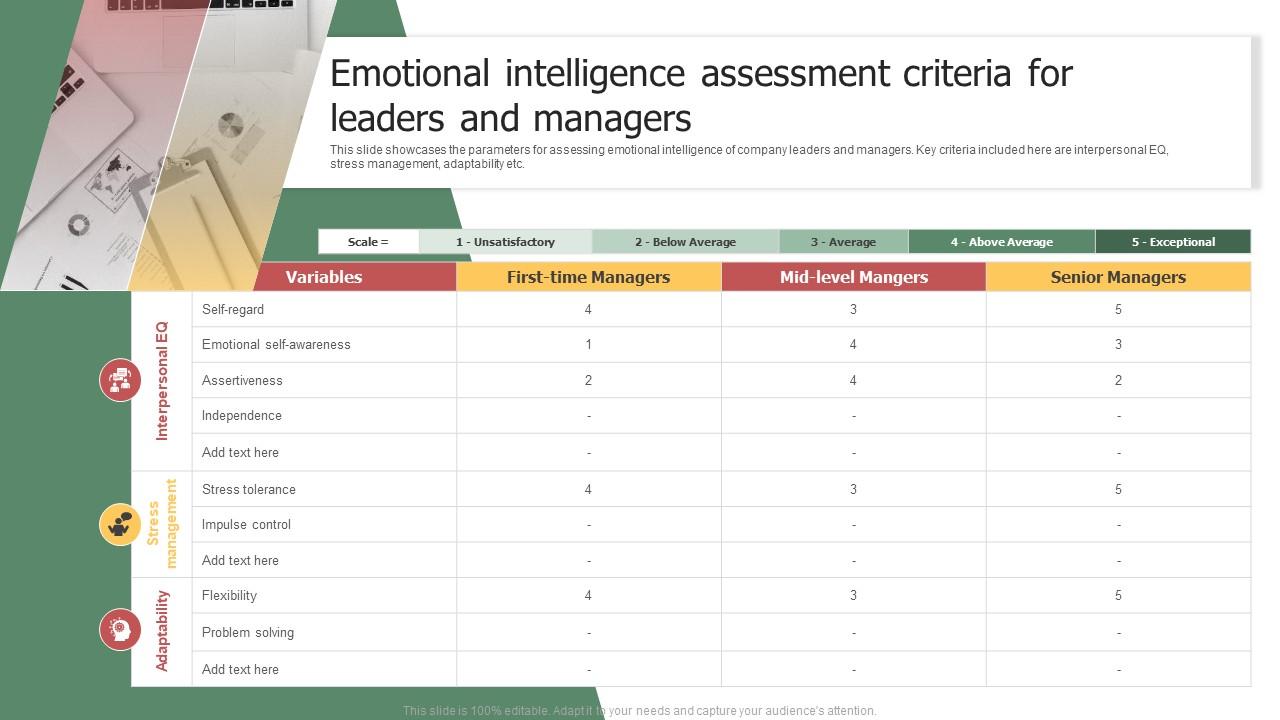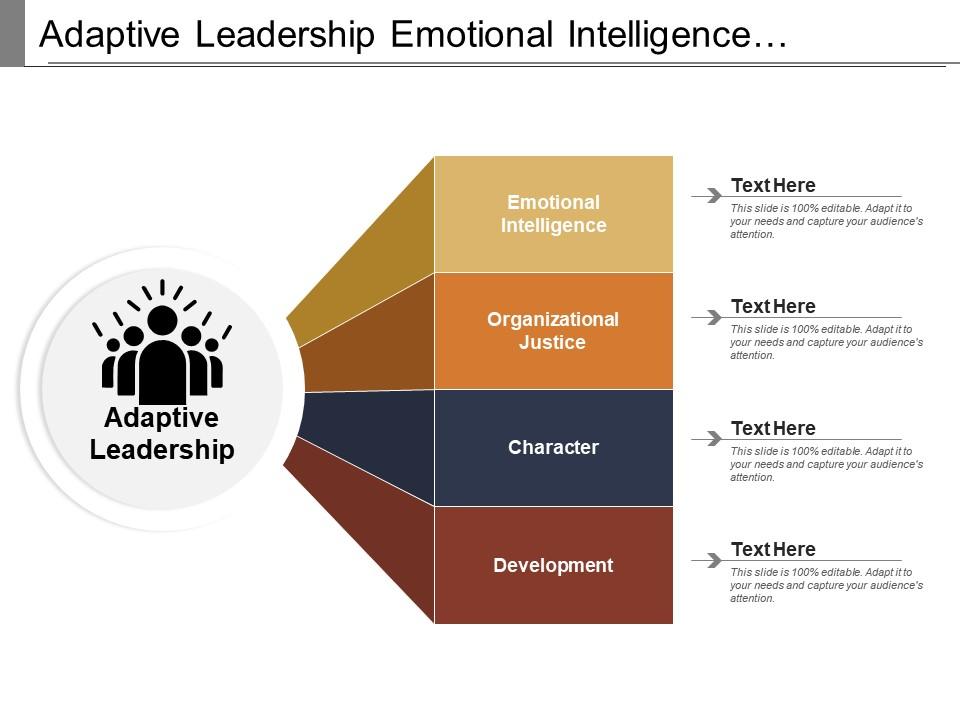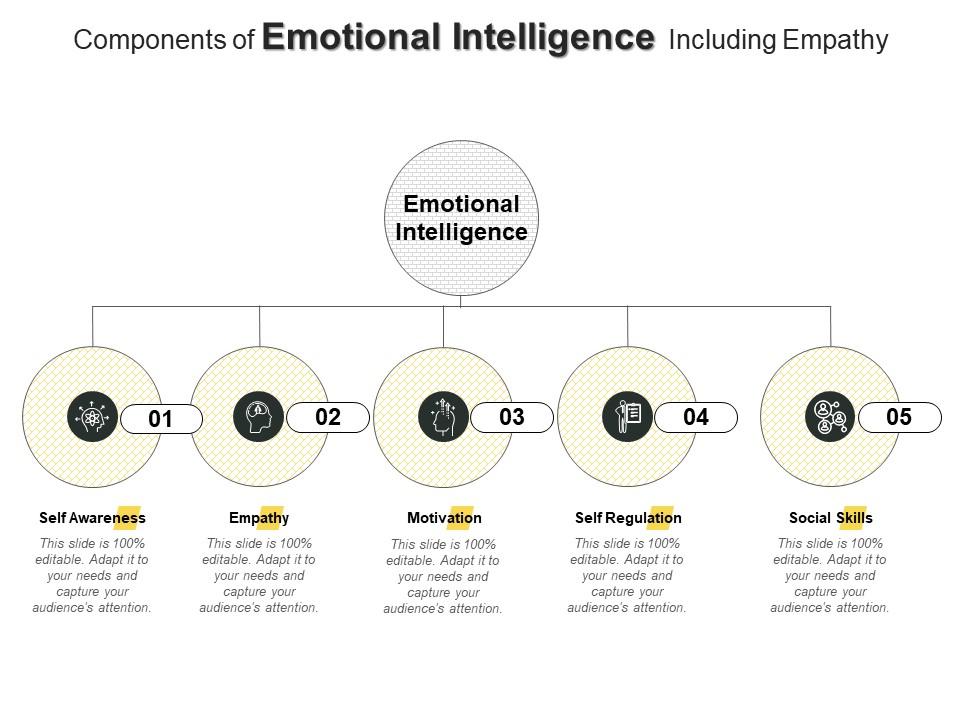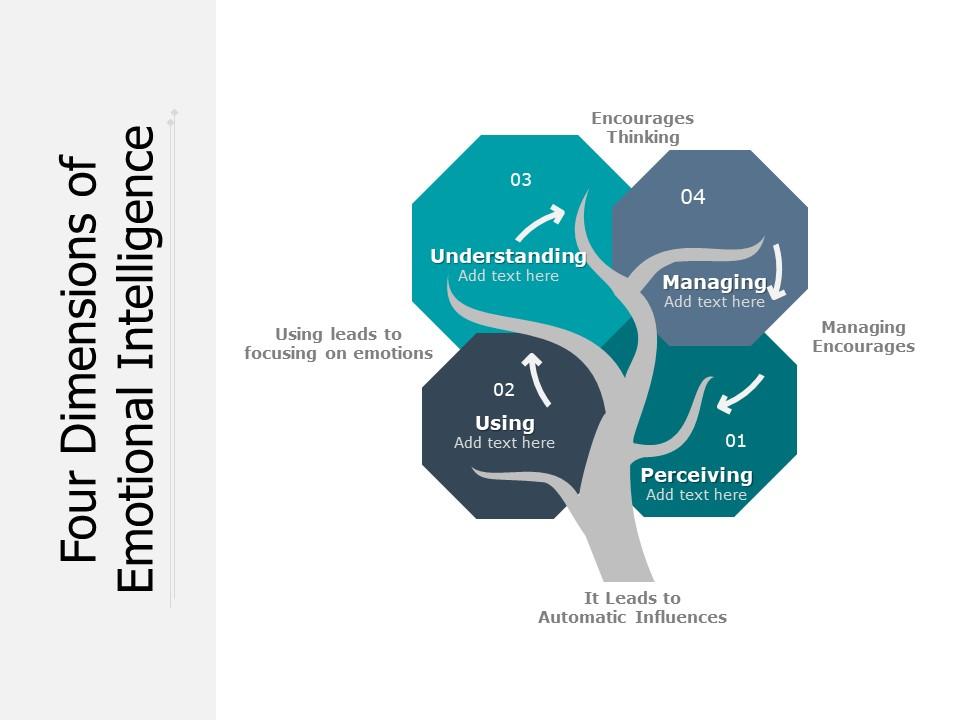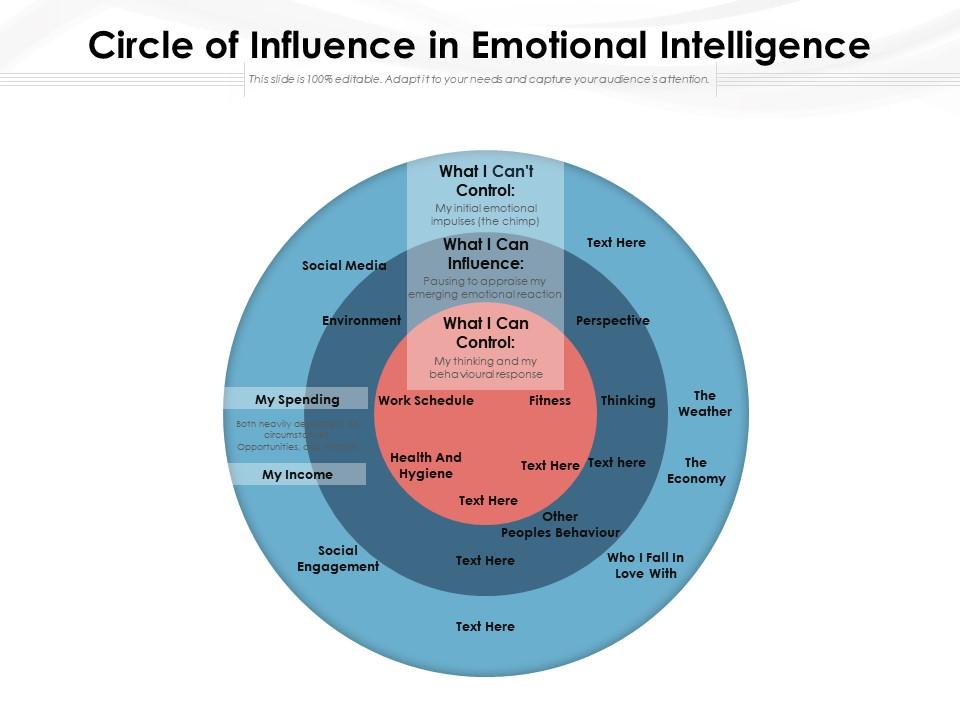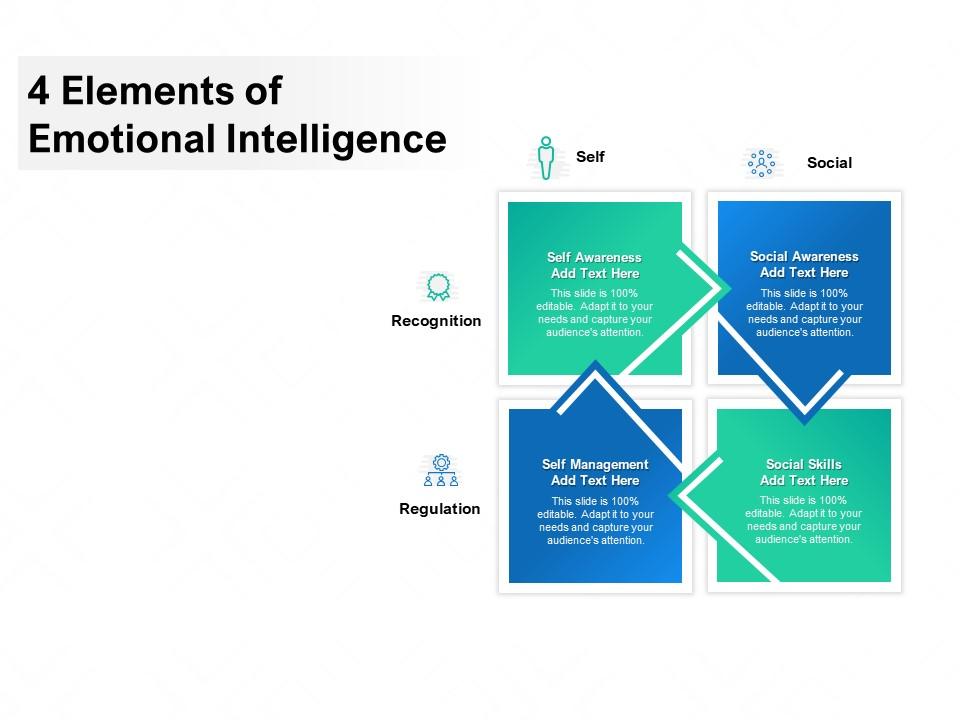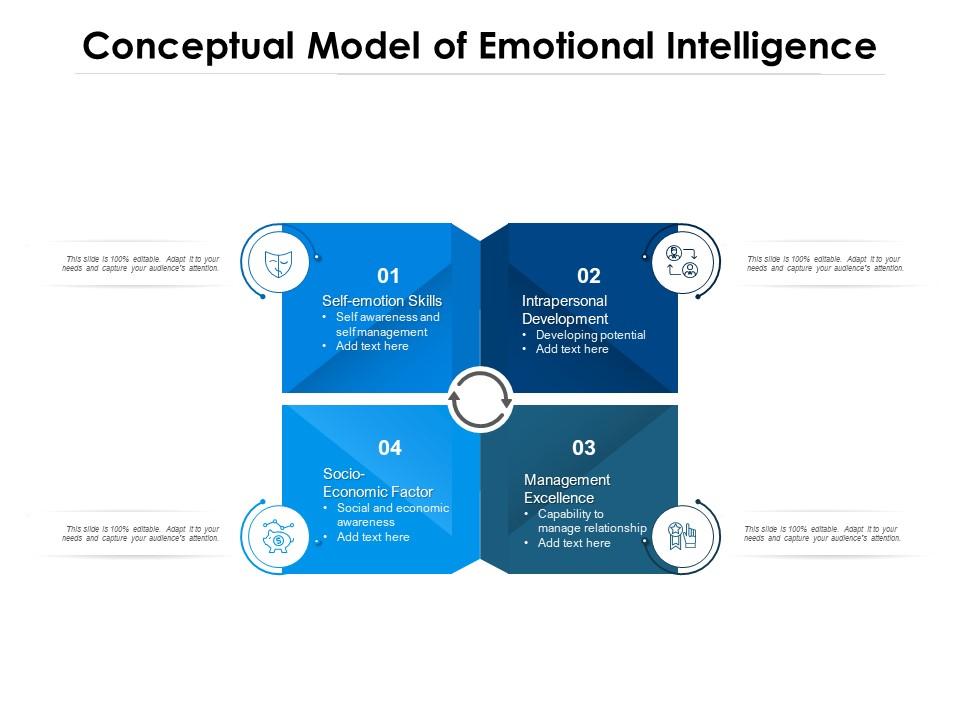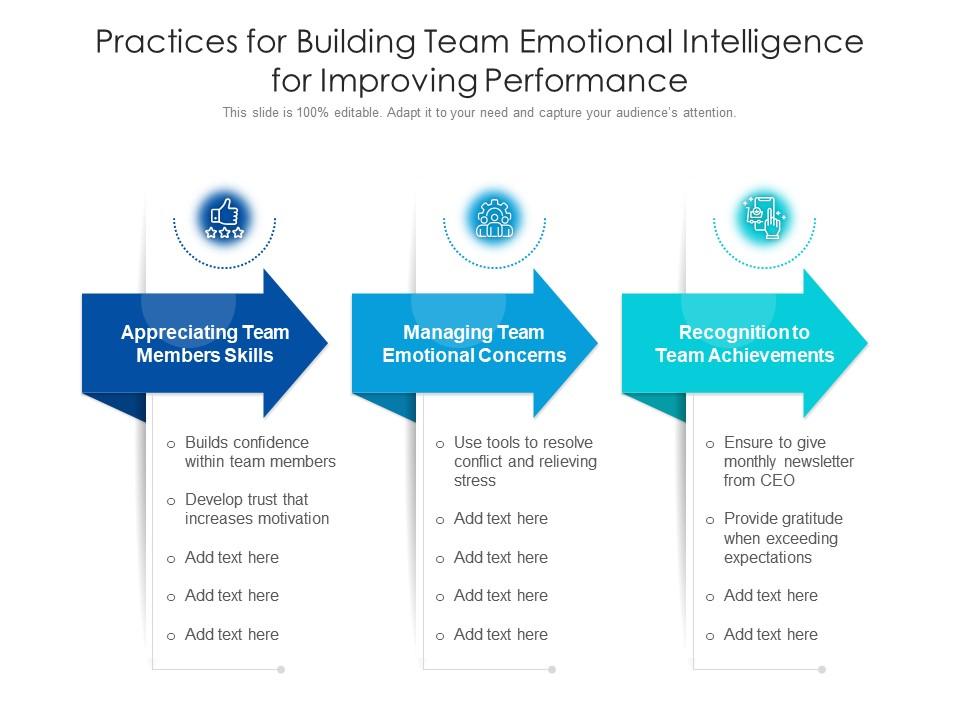" Emotional intelligence is not a luxury you can excuse with in tough times. It is a basic tool that, when deployed with finesse, is key to professional success." -Harvard Business Review.
In today's fast-paced and interconnected world, emotional intelligence plays a crucial role in professional and personal success. Understanding, managing, and leveraging emotions are essential skills for effective leadership and building strong relationships.
Look no further if you're searching for powerful resources to enhance your emotional intelligence journey. SlideTeam has curated a collection of the top 11 Emotional Intelligence PPT templates designed to assist you in unlocking your leadership potential and driving success.
Unlock the true potential of your leadership with our exclusive collection of pre-designed PowerPoint slides dedicated to "Emotional Intelligence." These presets are a goldmine of resources, empowering you to effortlessly incorporate the principles of emotional intelligence into your professional journey. With customizable slides at your disposal, you can effortlessly captivate your audience, deliver impactful presentations, and take your leadership skills to the zenith.
Don't miss this opportunity to elevate your performance - download these templates now and embark on a transformational journey toward leadership excellence. Let's delve into the world of emotional intelligence and explore the benefits of these premium templates.
Template 1: Emotional Intelligence in Conflict Management Training PPT
This presentation focuses on leveraging emotional intelligence to manage conflicts effectively. It includes slides on the Emotional Intelligence cycle, forms, level of disputes, ideal behaviors, different ways to respond, and more. It provides you with strategies and techniques to promote understanding, empathy , and resolution within teams, resulting in improved collaboration and productivity.
Template 2: Emotional Intelligence Leadership Management Awareness Conceptual Framework Business Success
With this preset, gain a comprehensive understanding of emotional intelligence's impact on leadership effectiveness. It presents a conceptual framework for developing self-awareness , self-management , social awareness , and relationship management skills, which are crucial for successful leadership.
Template 3: Emotional Intelligence at Workplace PPT Design
Discover how emotional intelligence influences workplace dynamics with this slide. It showcases the importance of emotional intelligence in fostering positive work environments, enhancing employee engagement, and achieving organizational success. Enhance your workplace success with this ready to use emotional intelligence layout. Get yours today!
Template 4: Emotional Intelligence Assessment Criteria for Leaders and Managers
Assessing emotional intelligence is vital for personal growth and leadership development. This layout offers assessment criteria and tools to evaluate emotional intelligence competencies, enabling leaders and managers to identify areas for improvement. Unlock the power of emotional intelligence in leadership and business success. Download our impactful slide!
Template 5: Adaptive Leadership Emotional Intelligence Organizational Justice Character Development
Explore the connection between adaptive leadership, emotional intelligence, and organizational justice. This template empowers leaders to create a culture that nurtures character development, fairness, and emotional intelligence within their teams. Optimize your workplace with this professional and appealing template designed for improved awareness and effectiveness.
Template 6: Components of Emotional Intelligence, Including Empathy
Empathy is a cornerstone of emotional intelligence . This template dissects the various components of emotional intelligence: self-awareness , motivation , self-regulation, and social skills , emphasizing the significance of empathy in understanding and connecting with others on a deeper level.
Template 7: Four Dimensions of Emotional Intelligence
Uncover the four dimensions of emotional intelligence through this template. It provides insights into perceiving, using leads to focus on emotions, understanding thinking, and managing encourages, helping individuals harness their emotional intelligence potential. Enhance character development now!
Template 8: Circle of Influence in Emotional Intelligence
This pictorial representation introduces the concept of the "Circle of Influence" in emotional intelligence . It guides leaders in identifying and focusing on areas within their control and what they can influence, enabling them to effectively manage emotions, navigate challenges, and influence positive outcomes. Download this exclusive slide deck now!
Template 9: 4 Elements of Emotional Intelligence
Discover the core elements of emotional intelligence – self-awareness , self-management, social skills, and social awareness – in this layout. Gain valuable insights into each element's significance and learn practical techniques to develop these skills. This informative template gives a deeper understanding of the four dimensions of emotional intelligence. Get yours today!
Template 10: Conceptual Model of Emotional Intelligence
This PPT slide presents a comprehensive abstract model of emotional intelligence. It highlights the interplay between self-emotion skills, interpersonal development, management excellence, and socioeconomic factor, providing a holistic perspective for developing emotional intelligence competencies.
Template 11: Practices for Building Team Emotional Intelligence for Improving Performance
Teams with high emotional intelligence are more cohesive, productive, and resilient. This template offers practical strategies for fostering team emotional intelligence, enhancing collaboration, and optimizing overall performance by appreciating team members' skills, managing team emotional concerns, and recognizing team achievements. Build a high-performing team by improving emotional intelligence . Download this upscale template for actionable practices and performance improvement.
The Final Thought
Emotional intelligence is a powerful asset in the realm of leadership and professional success. By leveraging the top 11 Emotional Intelligence PPT templates mentioned above, you can embark on a transformative journey of self-awareness , relationship building, and effective leadership. Download these templates and unlock your emotional intelligence potential today.
Professional Note: For more resources on enhancing workplace effectiveness, we recommend checking out our insightful article that dives into the crucial topic of cultural intelligence and provides valuable templates to help you easily navigate diverse environments. Visit the link here to gain further expertise in fostering inclusivity and driving success in today's globalized world.
FAQs on Emotional Intelligence
What are the five elements of emotional intelligence?
Ans: The five elements of emotional intelligence , also known as the EQ model, include self-awareness, self-regulation, motivation , empathy, and social skills . These elements collectively define a person's ability to understand and manage their emotions effectively, build strong relationships, and navigate social situations with sensitivity and adaptability.
What are the seven signs of emotional intelligence?
Ans: The seven signs of emotional intelligence, also known as the seven domains of EI, highlight different aspects of emotional intelligence and how they manifest in individuals. These signs include:
- Emotional self-awareness: Being in tune with one's own emotions, recognizing and understanding them without judgment. It involves being able to identify the root causes and triggers of emotions.
- Self-regulation: The ability to manage and control one's emotions, impulses, and reactions in various situations. It involves staying calm under pressure, adapting to change, and maintaining emotional balance.
- Self-motivation: Being driven by intrinsic motivation and having a positive outlook to achieve personal and professional goals. It involves resilience, perseverance, and the ability to bounce back from setbacks.
- Empathy: Sensing and understanding others' emotions, perspectives, and needs. It involves putting oneself in someone else's shoes and responding with compassion, care, and consideration.
- Social skills: Excelling in interpersonal communication, building relationships, and effectively navigating social situations. It involves active listening, effective collaboration, conflict resolution, and inspiring and influencing others.
- Recognizing others' emotions: Being able to perceive and accurately identify the feelings of others through nonverbal cues, facial expressions, and body language. It helps in understanding people's emotional states and responding appropriately.
- Emotional intelligence in relationships: Building and maintaining strong relationships based on trust, mutual respect, and effective communication. It involves being attuned to others' emotions, managing conflicts constructively, and fostering a supportive and positive environment.
Developing and nurturing these seven signs of emotional intelligence can lead to improved communication, stronger relationships, effective leadership, and overall personal and professional success.
What are the 12 keys of emotional intelligence?
Ans: The 12 keys of emotional intelligence provide a framework for developing and enhancing emotional intelligence skills. These keys include:
- Self-awareness: Understanding one's emotions, strengths, weaknesses, and values.
- Emotional regulation: Managing and expressing emotions in a balanced and constructive manner.
- Empathy: Sensing and understanding others' emotions and perspectives.
- Motivation: Being driven by personal goals and a sense of purpose.
- Emotional resilience: Bouncing back from setbacks and handling adversity with strength.
- Interpersonal communication: Effective listening, assertiveness, and expressing oneself clearly.
- Collaboration: Working well with others, valuing diversity, and fostering teamwork.
- Conflict resolution: Resolving conflicts constructively and finding win-win solutions.
- Leadership: Inspiring and influencing others while being open to feedback and continuous growth.
- Adaptability: Flexibility and openness to change and new experiences.
- Stress management: Coping with stress and maintaining a healthy work-life balance.
- Emotional well-being: Prioritizing self-care, self-reflection, and personal growth.
What are the four pillars of emotional intelligence?
Ans: The four pillars of emotional intelligence are self-awareness, self-management, social awareness, and relationship management. These pillars provide a foundation for developing strong emotional intelligence skills:
- Self-awareness : Understanding one's emotions, strengths, weaknesses, values, and impact on others.
- Self-management : Effectively managing one's emotions, impulses, and behaviors to achieve desired outcomes.
- Social awareness: Recognizing and understanding others' emotions, perspectives, and needs in different situations.
- Relationship management : Building and maintaining positive relationships, resolving conflicts, and effectively collaborating with others.


![[Updated 2023] Top 11 Emotional Intelligence PPT Templates For Leadership Effectiveness](https://www.slideteam.net/wp/wp-content/uploads/2021/10/Top-11-Emotional-Intelligence-PPT-Templates-For-Leadership-Effectiveness-2-1013x441.jpg)
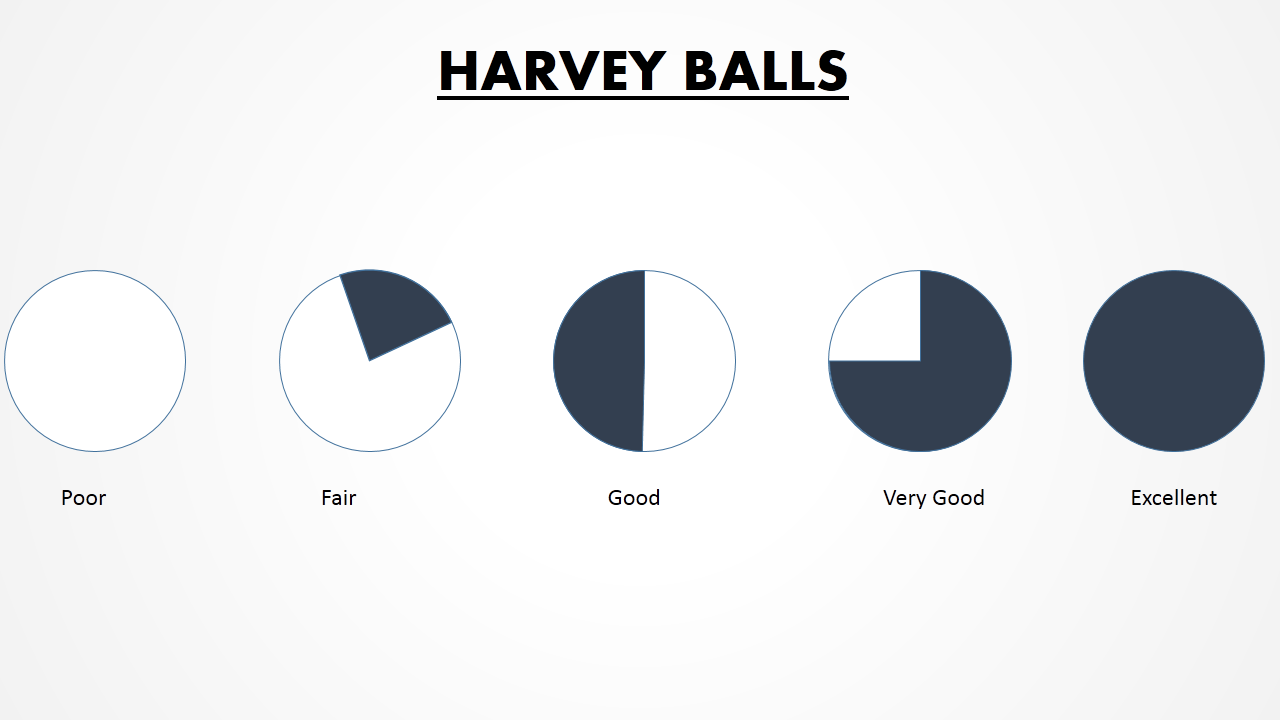

 Customer Reviews
Customer Reviews

